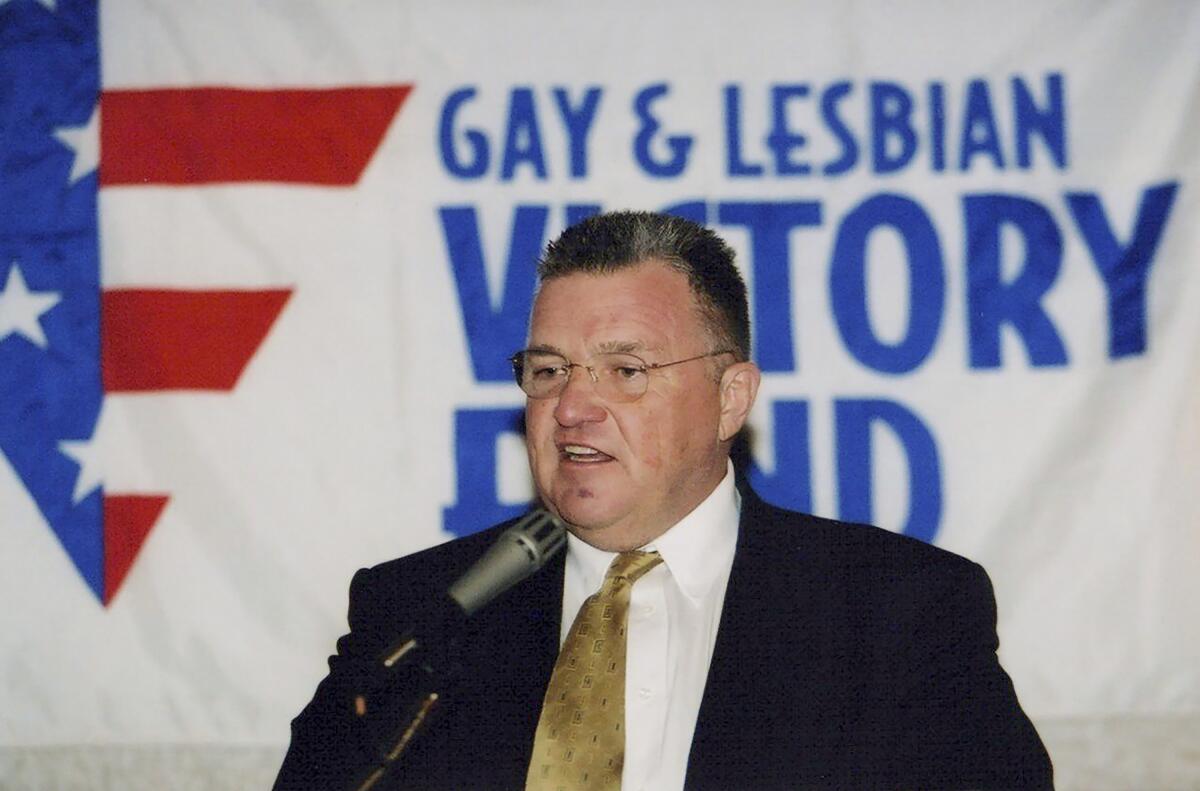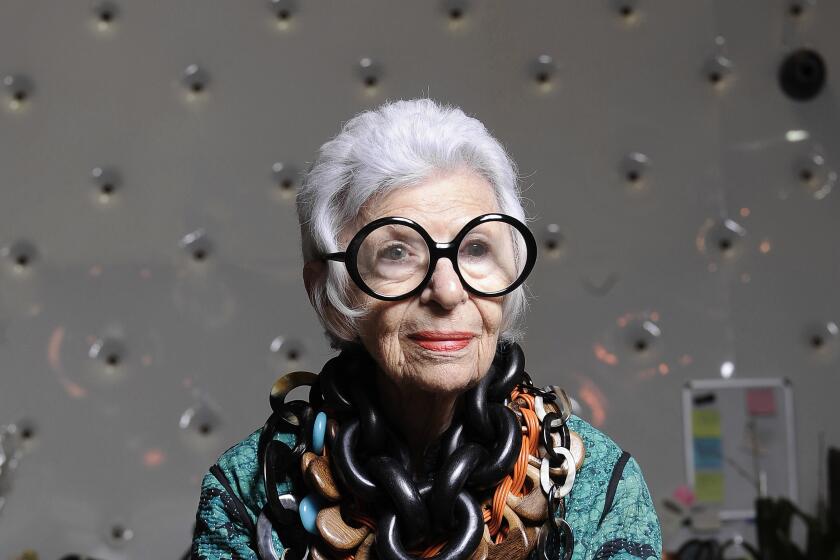David Mixner, LGBTQ+ activist who was once a major figure in L.A. politics, dies at 77

- Share via
NEW YORK — David Mixner, a longtime LGBTQ+ activist who was an advisor to Bill Clinton during his presidential campaign and later called him out over the “Don’t Ask, Don’t Tell” policy regarding gay, lesbian, bisexual, transgender or queer personnel in the military, has died. He was 77.
Mixner died Monday at his home in New York City, according to Annise Parker, president and chief executive of the LGBTQ+ Victory Fund. Mixner had been in hospice for some time, Parker said. In 1991, Mixner was one of the founding members of the organization, which recruits and supports LGBTQ+ political candidates.
Mixner for years was a major figure in Los Angeles politics and the gay rights movement, where he was known for his ability to raise money for liberal causes and bring people together.
In a review of Mixner’s 1996 memoir, The Times wrote: “Moving from the East Coast to California, Mixner widens his contacts to include the wealthy among the new openly gay male and lesbian community and its non-gay supporters and, ultimately, sympathetic politicians. He plays a pivotal role in organizing against a 1978 ballot proposition to ban homosexual teachers from classrooms. The campaign asked millions of Californians to rethink their views on homosexuality. They did, and gays won.”
In a statement Monday, the Victory Fund said, “David was a courageous, resilient and unyielding force for social change at a time when our community faced widespread discrimination and an HIV/AIDS crisis ignored by the political class in Washington, DC.
“In 1987, David joined one of the first HIV/AIDS protests outside the Reagan White House, where police wore latex gloves because of the stigma and misinformation around HIV/AIDS,” and was arrested.
Mixner believed that the LGBTQ+ community needed to be visibly and consistently involved in the political process and “dragged people along with him,” said Parker, the former mayor of Houston. He was social and witty and had a big personality, she said, but added that it was his moral compass that people should remember the most: He was willing to speak up and stand up.
Iris Apfel, known globally for her bold style and individuality, has died at 102. Her work appeared in the White House and the Metropolitan Museum of Art.
“He got other people to be involved, but he also held people accountable,” Parker said. “When politicians didn’t make their commitments, he was willing to call them out on it.”
Mixner grew up in Elmer, N.J., according to the New Jersey Hall of Fame, into which he was inducted in 2021. He attended Arizona State University and the University of Maryland and later helped organize efforts to end the war in Vietnam and worked for political campaigns. He also wrote several books, including the memoir “Stranger Among Friends.”
Mixner, who was credited with raising millions of dollars for Clinton from gay and lesbian voters, angered the White House in 1993 by attacking then-U.S. Sen. Sam Nunn (D-Ga.). In a speech, Mixner called Nunn, chairman of the Senate Armed Services Committee, an “old-fashioned bigot” for opposing Clinton’s plan to lift the ban on gay people in the military.
When Clinton began to compromise with Congress and the Pentagon on the issue later that year, Mixner accused the White House of misleading gay leaders. He said Clinton “sacrificed the freedom of millions for your own political expediency.” Days later, Mixner was among more than two dozen people arrested in front of the White House in a protest of Clinton’s retreat from his campaign pledge to lift the ban by executive order.
Neil Giuliano, the former mayor of Tempe, Ariz., traveled to New York last month to visit with Mixner, whom he had known for decades, and they talked about politics and life and the afterlife.
“Facing death compels one to be totally bare and totally honest,” he said.
Giuliano described Mixner as an “activist with grace” who was influential with people at all levels.
“It’s not like he wasn’t angry, but he came forward with a way of talking about issues and with such grace, and he presented in such a way that brought people in and didn’t keep people out,” said Giuliano, who now serves on the LGBTQ+ Victory Fund’s board. “I think that’s why so many people were drawn to him.”
More to Read
Sign up for Essential California
The most important California stories and recommendations in your inbox every morning.
You may occasionally receive promotional content from the Los Angeles Times.











